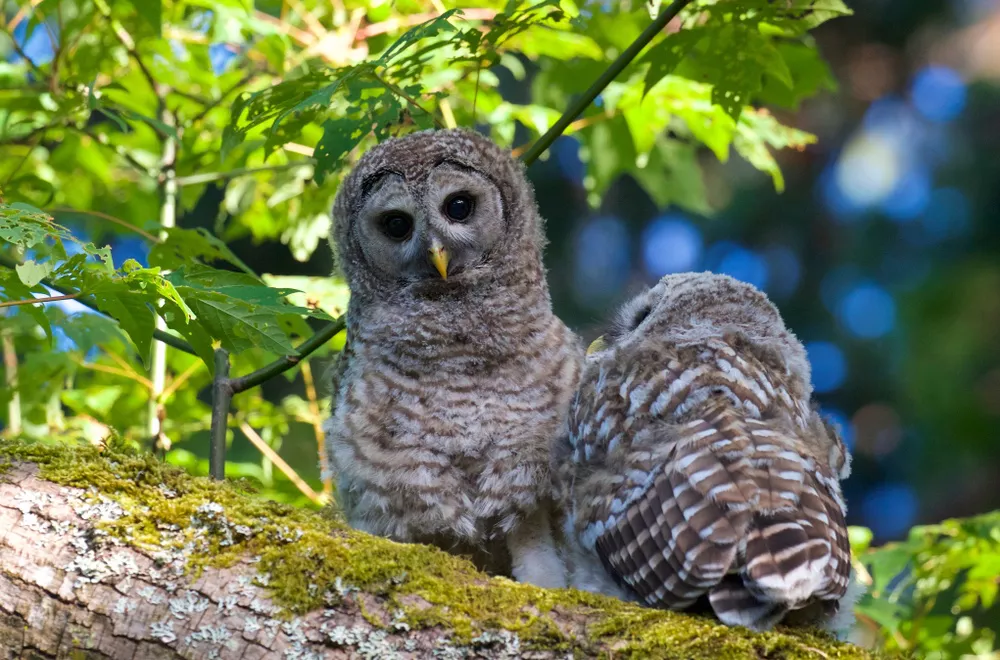Sen. John Kennedy amassed support from 30 senators to bring a resolution to the floor to stop a plan to kill North American barred owls and incidental killing of threatened spotted owls
WASHINGTON, D.C. — Animal Wellness Action and the Center for a Humane Economy today applauded 30 U.S. senators for signing a discharge petition to put S.J.Res. 69 on the floor to stop a costly, inhumane and unworkable plan to kill roughly half a million North American owls. Sens. John Kennedy, R-La., and Rand Paul, R-Ky., are the lead authors of the Congressional Review Act resolution to disapprove the U.S. Fish and Wildlife Service’s “Barred Owl Management Strategy,” which authorized the largest slaughter of birds in U.S. history.
On Friday, Sen. Kennedy turned in a petition with the 30 signatures required to discharge the resolution from the Environment and Public Works Committee and force a floor vote of all 100 senators on a plan that is expected to cost taxpayers at least $1.35 billion.

The resolution, which requires only a simple majority vote to pass, would halt a federal plan to shoot 450,000 barred owls across California, Oregon and Washington. The plan covers roughly 24 million acres — an area larger than the state of Indiana — and would even authorize owl shooting in 14 national parks and 17 national forests, including Olympic, Mount Rainier, Crater Lake, Redwood and Yosemite national parks.
“It is unconscionable that this plan turns the Endangered Species Act from a shield into a sword, using it to kill half a million barred owls and orphan countless owlets,” said Wayne Pacelle, president of Animal Wellness Action and the Center for a Humane Economy. “The plan will also enable major new incidental and accidental killing of threatened Northern spotted owls. This plan amounts to a war on both species of owls.”
The groups expressed concern that the U.S. Fish and Wildlife Service (USFWS) may use the barred owl shooting plan as a “mitigation” strategy to offset incidental take authorizations for Northern spotted owls, thus circumventing Endangered Species Act (ESA) protections for spotted owls and dramatically expanding timber cutting that will foreseeably harm them.
The groups charged that using the ESA to target native wildlife to reduce the effects of competition opens up a radical misuse of the law. There are 1,300 species listed as threatened or endangered, and nearly all of them face competition from other species in the wild.
“The ESA was designed to stop human actions that put animals at risk of extinction,” added Pacelle. “It was not designed to referee the workings of nature, including competition between species.”
The USFWS claims the plan will help Northern spotted owls by reducing competition from barred owls, their close cousins and look-alike owl species. But leading scientists and ethicists say that will not be the result. Dr. Eric Forsman, the nation’s leading expert on forest owls and a former U.S. Forest Service biologist, said that controlling barred owls “across a large region would be incredibly expensive, and you’d have to keep doing it forever because if you ever stopped, they would begin to come back. In the long run, we’re just going to have to let the two species work it out.”
Dr. Bill Lynn, an ethicist at Clark University who helped the Fish and Wildlife Service convene its “Barred Owl Stakeholder Group,” stated: “Barred owls will experience tremendous loss of life indefinitely, but this will do nothing to stop the decline of the spotted owl.” And Kent Livezey, a former Fish and Wildlife Service biologist and author of 14 peer-reviewed papers on owls, noted: “Spending more than $1 billion to kill almost half a million barred owls is not worth the carnage, expense, precedents, and distraction from what is the more important issue: protection of biodiverse old-growth forests.”
“This program is a bait-and-switch maneuver by a segment of the West Coast timber industry to shift blame for spotted owl declines away from decades of habitat destruction and to blame a look-alike owl,” Pacelle added. “Spotted owls are in danger because of people, not because of other owls.”
The scale and cost of the plan are unprecedented. Estimated at roughly $3,000 per owl, it would be the largest government-sponsored killing of birds of prey ever attempted by any nation. The coalition opposing the plan — now nearly 450 strong — includes Audubon societies across the three affected states, rural Oregon lawmakers, Washington’s former public lands commissioner and the editorial boards of the Los Angeles Times and The Columbian.
A companion measure in the House of Representatives, H.J.Res. 111, led by Reps. Troy Nehls, R-Texas, and Scott Perry, R-Pa., is co-led on the Democratic side by two range-state lawmakers, Josh Harder, D-Calif., and Adam Gray, D-Calif. Before the House and Senate resolutions were introduced, House lawmakers sent two bipartisan letters — on March 7 and May 21 — signed by 37 members of Congress, including 19 Republicans and 18 Democrats, urging Interior Secretary Doug Burgum to halt the plan.
If passed by both chambers of Congress and signed by the president, S.J.Res. 69 would nullify the Barred Owl Management Strategy and prevent reissuance of an identical or substantially similar rule. It would not impede legitimate conservation efforts to protect Northern spotted owls, such as habitat restoration, genetic augmentation, forest management practices or captive breeding. In short, passage of the resolution would not prevent the agency from crafting a more reasonable, science-driven approach in the future.

